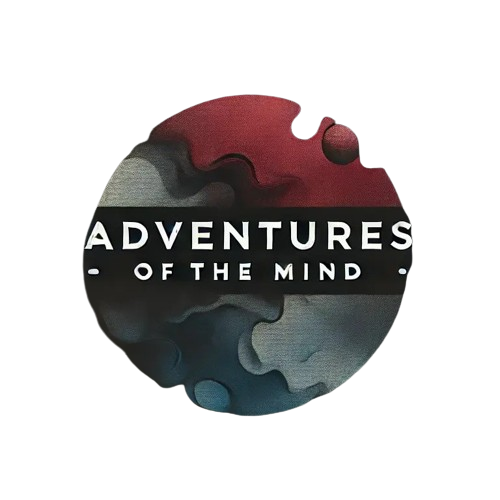Passion Isn't Optional
Published by Ben Worrall 30th November 2024

What does it mean to live a good life?
There may not be a simple answer. However, there are principles that, if followed, can help guide us towards our personal version of a good life.
One of these principles is passion.
Why passion?
Because reality is a passion machine.
Everything that exists — everything that ever will — does so because it was ignited by a spark of passion.
The common advice is to follow your passion. I agree. It’s a wise move to make passion your compass for life. But passion is far more fundamental than just an activity you enjoy doing. It goes deeper than finding a career that aligns with your interests.
Passion is the motivational force that keeps you engaged in life. It’s the juice that gets you moving. The creative force behind your actions. Your life energy, in a sense.
By underestimating passion, you risk apathy and depression. A life that feels cold and dead, and lacks in direction and meaning.
A deficiency in passion is also the hidden culprit behind plaguing addictions and ailments of all kinds. It leaves us striving for meaning in unhealthy and destructive ways.
I’m writing this essay to explore the principle of passion, and to remind myself and my readers of what it feels like to live passionately.
Rediscovering passion
As children, we are naturally passionate about all sorts of things. I remember discovering video games for the first time and wanting to spend all my time immersed in them. Or going outside with friends and creating elaborate fictional worlds and narratives that we’d all play our parts in. These types of activities are born from passion — there was no external motivation — they were just fun expressions of imagination and creativity.
These natural passions are still with me now, but they no longer have the same vitality.
Why is this?
Well, I think at least part of the reason is that we’re conditioned out of the idea that we can do things just for pure fun and creative satisfaction. And therefore adults often have a more difficult time identifying passions. There must be a point: a clear material or psychological gain. Life is serious and there’s no time to consider even the potential of cultivating unexpected passions.
I don’t buy into the idea that everyone has one true passion. There are countless ways to be passionate about life. It’s an infinite sandbox of play. Unfortunately, we serious people seem to have a difficult time recognising this.
Maybe you were lucky enough to discover a passion or two early in life and you’ve stuck with it all this time. But most of us have been left in the dark by the time we reach adulthood.
No clue where to start? You could try contemplating questions like:
What do I enjoy doing?
What am I curious about?
What makes me feel deeply?
What gets me excited about life?
What does my perfect day look like?
What’s something I do now that I’d like to do more of?
What’s something I did in the past that I’d like to return to?
Rediscovering passion often requires exploration and discovery. It isn’t always presented in a sealed gift bag. Part of the fun is the search.
Remember, cultural narratives will try to limit your options for what you’re allowed to be passionate about. The truth is reality is way broader and deeper than it first appears. The possibilities are endless. Don’t let them box you in. Instead, transcend preconceived ideas by exploring and seeking novel experiences.
If you find joy in mowing your lawn every Saturday afternoon with a cold beer and a pack of cashew nuts, then that’s passion. It doesn’t have to be big and complex.
But what if there’s nothing I’m passionate about?
I get it — trust me. I’ve often felt this way and still do sometimes. Identifying a passion can be difficult, especially when you build it up in your head as the one thing that’s going to make you happy, bring success, and solve all your problems.
Don’t think of it that way.
Instead, consider passion as something that needs to be developed over time.
You could start with an aspect of life that you’re curious about. Once you get involved and begin to explore, you’ll often find that a hidden depth reveals itself. What was once simply an activity transforms into a world of its own. This depth sparks fascination — and that’s where passion is born.
An example of this would be my passion for film. I was a fan of movies from a young age, but it wasn’t until I started to become seriously involved in film as a craft, and began studying the history of film, that a deep passion developed. The more time I spent in the world of cinema, the greater depth was revealed to me. I’m now at the stage where every film I watch feels layered with meaning I wouldn’t have picked up on previously. This has dramatically enhanced my experience.
Also, don’t underestimate how much passion can develop as you become proficient at something. Take someone who goes skiing for the first time — they’re likely to feel little passion for it while they’re constantly ending up flat on their face. But when they become good enough to taste the thrill of navigating a treacherous slope, passion is soon to follow.
For me, this has been the case with writing. I’ve always struggled with writing and even hated the process at times, but the better I get at it, the more fun and rewarding it becomes. I’d imagine this experience of passion developing alongside mastery could be applied to almost anything.
Building your life around passion
What I believe you should aim for — and what I’m aiming for — is to slowly build a life that allows you to live as passionately as possible.
Notice that passion doesn’t mean easy or comfortable. In fact, passion is often the complete opposite. But passion is infinitely more valuable and brings far greater joy because it honours your love for life rather than relying on an escape from it.
And so, if you get a kick out of designing and creating crafts, spend as much of your time on that as you can. If you love food, build a life around exploring unique cuisines. If sports light you up, get involved in them as much as possible. If family life fills you with joy, then focus on your family and let go of all the extra bullshit.
It’s actually kind of obvious when you think about it, yet for some reason, people don’t do this. They spend their lives doing things they’re not passionate about because they’ve bought into certain narratives about how life should be lived — where working to acquire and consume seems like the most realistic option. It’s not. It’s shortsighted.
And yes, I know there are limitations and practical matters to consider. But even with responsibilities that need to be prioritized, you can still move in the direction of passion. Why wouldn’t you? What else are you going to do?
Passion leads to success
If you’re an ambitious person and want to make an impact with your life, you should take passion seriously — not just as an abstract idea, but as a force to integrate and operate from every day.
Some make the argument that following your passion is for fools and you should just focus on the practicalities. To an extent I get it. It’s easier and more comfortable to spend your time doing whatever pays the most and then use that financial leverage to enjoy your time off. But is that really what you want? Just an easy and comfortable life?
What you’re missing here is the spiritual connection to reality that comes with a passionate lifestyle. And for me, this connection is way more valuable than having the immediate financial freedom to eat out on weekends. Without passion, you’re taking your existence for granted. And deep down, you’ll know it.
What’s ironic is that the person who ignores passion likely won’t find the levels of success experienced by the person who crafts a life around their passions. The passionate person will be intrinsically motivated, and therefore, work harder. Their performance will be of a higher quality as they can tap into their love for the work — which can then be infused into it.
Whenever I’m writing an essay or a short story, my best results almost always come when I’m engaged and passionate. I move into a flow state, a deep connection to reality takes over, and in these moments the work seems to create itself without a whole lot of input from my thinking mind. This is the state you want to get to, and it’s only possible when you get in touch with a love for the work.
To get even more practical about the feasibility of passion, let’s consider the modern global market, where cheap labour and AI are quickly becoming the norm for general roles that don’t require deep understanding or passion for a specific area.
With this in mind, the best way to avoid the incoming wave of replacements is to go all in on your passions. By doing so, you gain specific understanding, skills, and intuition — setting yourself apart and making your work truly valuable.
You’ll be playing, doing what you’d happily do for free while getting paid for your unique contributions.
Passion and Love
“The salvation of man is through love and in love.” — Victor Frankl
I’m becoming ever more convinced that many of our problems come from a lack of love.
When I talk about love, it’s not in the normal sense of interpersonal love, but a love of reality itself. This type of love is difficult to describe, though I believe it’s closely connected to passion. And so, I’d be willing to make the argument that the more love you’re able to infuse into your actions, the closer you’ll be to living the good life.
By spending your time engaging with aspects of life you’re passionate about, you’re turning yourself into a conductor of love. Not only will the things you do be infused with your passion, but other people will be able to experience it too.
This, in my opinion, is what life is all about. And so if you’re disregarding passion as a compass for life, then you’re turning your back on meaning and purpose beyond survival. You're denying yourself of your own highest possibilities, and by doing this, moving further away from the good life.
Ben Worrall





